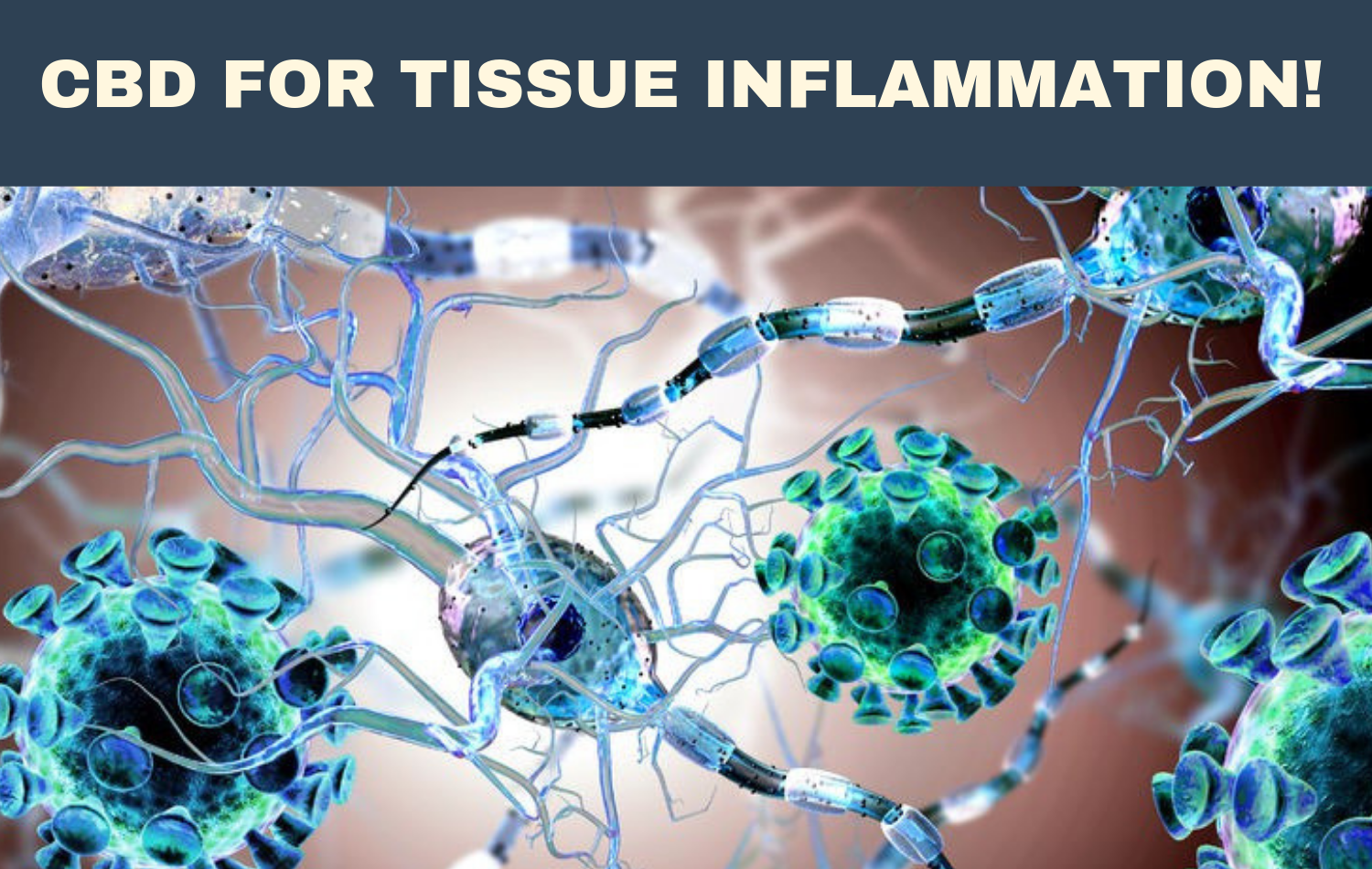Cannabidiol, or CBD, is famously anti-inflammatory. Produced by the cannabis plant, CBD is a non-psychoactive cannabinoid that is just one of many.
Its ability to fight inflammation so effectively, right at the cellular level deep within tissues, is a primary reason for its promise in both pathological circles, and even athletic ones. Science is finding more properties of CBD valuable; whichever way you take it.
CBD is increasingly widespread already for medicinal use. It is also popular as both a wellness and dietary supplement.
Recently, researchers have been analyzing CBD in detail, discovering it contains neuroprotective, antioxidant, anticonvulsant, analgesic, and antiemetic, and yes, anti-inflammatory properties too.
Its efficacy at relieving inflammatory pain in most issues is a scientific breakthrough.
CBD’s Role in the Endocannabinoid System
CBD is a secondary metabolite, which means that it only forms within the trichomes of cannabis plants, during the flowering stage.
As a phytocannabinoid, from plants, CBD is perfectly compatible with natural endocannabinoids, working in the same way. It interacts with the body in several ways, exerting much of its effects via its manipulation of the body’s own vanilloid and serotonin receptors.
The endocannabinoid system consists primarily of endocannabinoid receptors that live within the cell membranes of different tissue cells throughout the body, called CB1 and CB2.

Cannabinoids work by binding to these receptors, but CBD acts uniquely. CBD is an antagonist, so although it does not bind directly to them, it does influence the endocannabinoid indirectly, and significantly.
According to the U.S. National Library of Medicine, CBD both reduces and enhances the binding action of certain receptors. It also functions as an anandamide reuptake inhibitor.
What does this mean?
Anandamide is one of many endocannabinoids, which shares very similar structures with cannabinoids from cannabis plants. They interact with these same receptors in much the same way.
Understanding Inflammation
Although inflammation is very unpopular, in that nobody wants it, your body actually needs it.
According to the U.S. National Library of Medicine, inflammation is a crucial physiological process, a primary element of your body’s natural immune response.
However, inflammatory diseases become a risk factor if there is too much in the body over a prolonged period, such as rheumatoid arthritis and even cancer. Chronic inflammation is dangerous; persistently invading tissues at all levels.
Acute inflammation, on the other hand, occurs after traumatic injury. Examples include strained muscles, broken bones, or strained ankles, even harmful invading bacteria. It manifests as intense heat, swelling, redness, pain, and immobility. This natural response protects the injury, restricts movement, and eases healing processes.

Inflammation is the movement of specific cells into an affected area, which then start to remove damaged tissues and debris. This is important. You do not want to stop it.
Although anti-inflammatory drugs numb the pain and slow this response, your body does need to go through this cleaning process. This controversial discussion is what surrounds the use of these medications.
Chronic inflammation characterizes itself as a persistent inflammation that occurs over time. It can be the result of an overactive immune response, or it could be from viruses or other pathogens.
It can occur when the immune system attacks healthy tissues it perceives as a threat, which leads to autoimmune diseases, such as sinusitis, Crohn’s disease, rheumatoid arthritis, and asthma.
Effects of CBD on Inflammation
Studies show CBD is helpful in reducing both chronic and acute inflammation. It mediates the immune response associated with chronic autoimmune issues, such as those mentioned above, as well as depression, Alzheimer’s disease, hypertension, and neuropathic pain.
According to the U.S. National Library of Medicine, CBD is already proving a novel approach to future anti-inflammatory drugs.
This cannabinoid appears to fight inflammation in a variety of unique ways, along with all of its associated oxidative stress, such as acting as an immunosuppressant on microglial cells and macrophages, cells crucial in healthy immunity and inflammatory response.
The U.S. National Library of Medicine also shows CBD effectively activating glycine receptors to reduce chronic inflammatory pain.
Furthermore, the U.S. National Library of Medicine published another study investigating the effects of treating intestinal inflammation with CBD.
Results showed CBD consumption decreasing macrophages levels significantly in rodent intestines. This indicates a promising potential for future therapeutic pathways for the use of CBD in treating inflammatory bowel diseases and others.

CBD for Exercise
Because of its powerful anti-inflammatory properties, CBD is incredibly popular among athletes and other sportspeople, many of whom admit to using it as a health supplement.
Exercise fanatics are at high risk of acute and chronic pathologies, including severe musculoskeletal injury in some sports. Inflammation is always a natural response, even to just working out too hard.
CBD is proving extremely helpful in fighting pain and inflammation, as well as reducing swelling and other inflammatory reactions.
It can also combat the micro-tears associated with everyday exercise, as well as stimulate faster recovery.
CBD is not prohibited on the World Anti-Doping Agency’s list anymore, so folks are using it safely and effectively to treat pain and inflammation before, during, and after sports.
- How CBD Helps Tissue Inflammation - June 24, 2019
- How CBD Oil Effectively Treats Irritable Bowel Syndrome (IBS) - March 18, 2019


